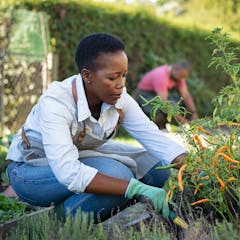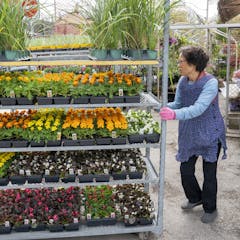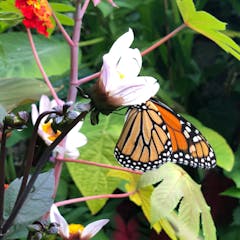
Articles on Gardens
Displaying 1 - 20 of 75 articles

A little corner of the garden set aside for wildlife can make a huge difference, if we all do it.

Public engagement through school projects and the RHS Chelsea Flower Show play a vital role in educating the public about the myriad of environmental benefits provided by the humble garden hedge.

This episode explores how colonial history has affected what we plant and who gets to garden. We also discuss practical gardening tips with an eye to Indigenous knowledge.

New research shows how university garden initiatives can help drive transformative change and nurture a new generation of environmental and socially conscious change-makers.

The native red admiral is less common than it used to be, but we can all help threatened bug species by ensuring they have the right habitats to thrive in.

A study of dozens of city gardens and urban farms across the US and Europe found several ways to boost their benefits, not just for their neighborhoods, but for the planet.

When people find themselves displaced from their homes, finding or creating beauty can be just as vital as food, water and shelter − and serves as a form of resistance and resilience.

As we approach the start of gardening season, it’s a good time to ask some questions about what to plant and who gets to plant.

Instead of focusing their limited time, energy and finances in effective interventions in their gardens, many individual gardeners are falling prey to greenwashing.

As early as 1885, Richard Schomburgk told Nature about the drought affecting the Adelaide Botanic Gardens.

Food forests are urban oases that pack a lot into small spaces, including food production, local cooling and social connections.

Plath’s sublime nature poetry deserves widespread appreciation for its unfettered joy and deep attunement to the natural world.

South Africa needs to integrate urban green spaces as part of valuable infrastructure and provide framework for their sustainability.

Many gardeners worry these large larvae might damage plants. But before you squish them, read this.

Snails use their slime to help them move, stop them drying out and to scare off predators.

Our study found it wasn’t cafes with access to sugar-rich food that led to more miner aggression. In fact, gardens were where we recorded the highest amount of aggressive behaviour.

Gardens require huge labour, and outcomes like health, well-being or food security are affected by systemic barriers people face in cities and schools.

If you’re hot, so are your four-legged neighbours.

Garden surveys reveal what makes a house a home for Britain’s favourite mammal.

Pollen brings seasonal misery to millions of Americans, but it serves a critical purpose: fertilizing many kinds of plants, including food crops.
